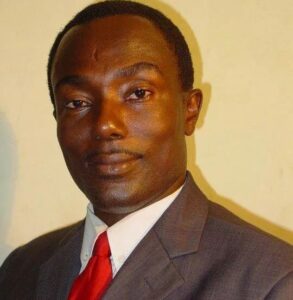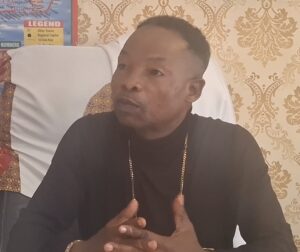
Professor H. Kwasi Prempeh, Executive Director of CDD-Ghana
It has emerged, through a survey conducted by the Centre for Democratic Development (CDD), that New Patriotic Party (NPP) Members of Parliament and appointees of the Akufo-Addo government were responsible for the massive number of votes the President lost in the 2020 general elections.
Per the survey, a cumulative 58 per cent of the respondents attributed “the reduction in President Nana Akufo-Addo’s vote margin to his policy decisions, his MPs and appointee’s performance.”
The respondents also attributed the loss of many parliamentary seats by the NPP to the MPs’ non-performance, bad campaign and the non-performance of the party’s candidates.
President’s votes
On reduction in the President’s vote, 19 per cent of the respondents attributed the loss to the MPs’ and government appointees’ performance, with 21 per cent saying the President’s policy decisions, which were largely implemented by the appointees, was the cause. Some 18 per cent attributed the loss to the President’s own performance, while 16 per cent attributed the loss to low voter turn-out.
Just three per cent of the respondents attributed the loss to the opposition NDC’s new policies and campaign strategies, making the NPP’s huge loss in numbers a self-inflicted one, as the NDC offered virtually no challenge.
MPs’ performance
On the party’s performance in the parliamentary elections, a staggering 33 per cent attributed the huge loss to the MPs’ non-performance; 24 per cent said the NPP MPs’ campaigns were bad; while just four per cent attributed the loss to economic issues and low voter turn-out.
This enforces the high percentage of respondents who expressed high hopes in the ability of the Akufo-Addo government to better their lot in its second term in office, but still voted against the governing party.
It further enforces the fact that even though the government performed well in the eyes of Ghanaians, the self-inflicted wounds by the NPP MPs and the appointees caused the government huge loss in figures in the 2020 elections, compared to the 2016 general election.
President Akufo-Addo lost close to 500,000 from the vote margin he obtained in 2016. The NPP also lost 32 parliamentary seats, of which 31 went to the NDC and one to an independent candidate, leaving both NPP and NDC with 137 seats each.
Hung parliament
The country, for the first time in the Fourth Republic, has to deal with a “hung” Parliament, with a staunch opposition NDC member as the Speaker of the House.
According to the survey, most Ghanaians expect the current composition of Parliament to impact on some parliamentary practices/functions and government’s business/programmes. Per the survey, 80 per cent of the respondents believe the nature of Parliament would force or ensure full attendance of all MPs during sittings in Parliament; improve the practice of parliamentary democracy, thereby enhancing democratic development and keep the executive in check. Some 73 per cent also believe that the nature of Parliament will aid scrutiny of international contracts.
However, 61 per cent think Parliament will slow down decision-making as a result of consensus building; 60 per cent say it will make MPs connive more on issues that affect them; while 57 per cent say it will disrupt the NPP government’s business and agenda.
Some 55 per cent say it will make businesspersons unsure of the outcome of government policies and programmes for the private sector, with 35 per cent saying it will not make any difference.
Survey
The survey sampled 2,400 randomly selected adult citizens from all 16 regions of Ghana. Data was collected from 23 May to 3 June, 2021. It used face-to-face interviews in the language of the respondent’s choice, and the regional sample sizes were picked based on the 2019 adult population projections of the various regions.
The survey sought to gauge citizens’ opinions on a number of issues, including respondent’s interpretation of the outcome of the 2020 elections, particularly the parliamentary one; expectations of the likely impact of the current “hung” Parliament; expectations of the likely impact of the election of NDC person as Speaker of Parliament; and expectations regarding the performance of the NPP government in the next four years.






Thank you for your sharing. I am worried that I lack creative ideas. It is your article that makes me full of hope. Thank you. But, I have a question, can you help me?